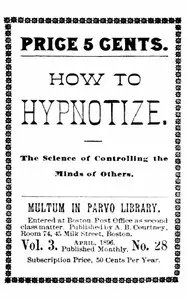"Messages to Canada" by Shoghi Effendi is a chronicle from the mid-1900s of letters to the Bahá'í community within Canada. These messages reveal the formation and growth of the Bahá'í Faith in Canada, along with the plans used to organize it. The book highlights key moments and projects, like putting into action schemes to spread Bahá'u'lláh's lessons throughout the country. Effendi's writing begins by celebrating the start of direct communication with Canadian believers, noting how vital their role is in using faith to overcome bias and sectarianism. The initial letters showcase the community's early challenges and successes, such as the election of the first National Assembly and starting a Five-Year Plan to bring in new members, educate them, and create local spiritual groups. Effendi's words urge the Canadian Bahá'ís to stay strong as they work to promote their faith during a critical period.

Messages to Canada
By Effendi Shoghi
Read letters revealing how a religious community in Canada overcame challenges, organized itself, and spread its message across the nation.
Summary
About the AuthorShoghí Effendi (; Persian: شوقی افندی; 1 March 1897 – 4 November 1957) was an Ottoman-born Iranian religious figure and the Guardian of the Baháʼí Faith from 1921 to 1957. As the grandson and successor of ʻAbdu'l-Bahá, he was responsible for creating a series of teaching plans that oversaw the expansion of the Baháʼí Faith to a number of new countries, and also translated many of the written works of crucial Baháʼí leaders. Upon his death in 1957, the Hands of the Cause, which included his Canadian wife Rúhíyyih Khánum, took on the role of overseeing the transfer of the religion's supreme legal authority to the Universal House of Justice, which has held elections every five years since 1963.
Shoghí Effendi (; Persian: شوقی افندی; 1 March 1897 – 4 November 1957) was an Ottoman-born Iranian religious figure and the Guardian of the Baháʼí Faith from 1921 to 1957. As the grandson and successor of ʻAbdu'l-Bahá, he was responsible for creating a series of teaching plans that oversaw the expansion of the Baháʼí Faith to a number of new countries, and also translated many of the written works of crucial Baháʼí leaders. Upon his death in 1957, the Hands of the Cause, which included his Canadian wife Rúhíyyih Khánum, took on the role of overseeing the transfer of the religion's supreme legal authority to the Universal House of Justice, which has held elections every five years since 1963.


















